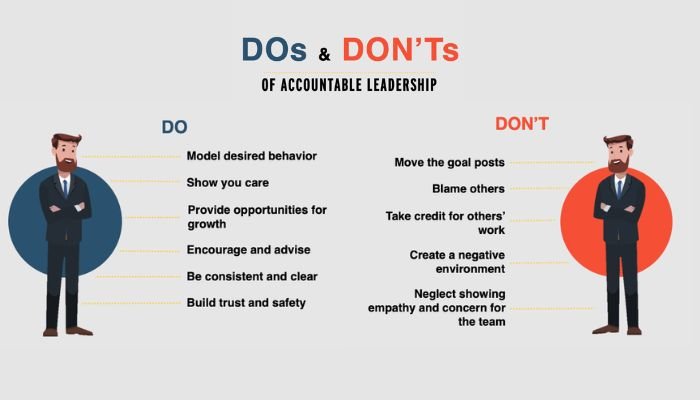8 Traits of Successful Leaders

Leadership is a critical part of any organization, and having strong leaders can be the difference between success and failure. Leadership encompasses many different roles – from setting direction to problem-solving to inspiring followership – which require various skill sets in order for someone to excel as a leader.
This article seeks not only to explore some basic traits that all great leaders possess but also to provide examples on how these traits should be applied when taking up an influential role within an organization or team.
1. Communication Skills

Communication skills are one of the most important traits necessary to be a strong leader. It is essential for any successful relationship, and it can make or break a team’s success in reaching its goals.
Good communication helps create understanding, trust, and respect within teams which allows them to work together harmoniously while guiding leaders toward better decision–making opportunities as they have access to all opinions during discussions. Effective communicators take time, actively listen, engage, and understand what other people say before speaking up with thoughtful considering all options that may benefit the organization, its employees & customers alike.
2. Visionary Thinking
Visionary thinking is an essential trait of good leadership. It involves looking ahead to the long-term goals, objectively evaluating current situations, and predicting potential outcomes.

Vision provides a core purpose for leaders and really allows individuals and companies to establish clear strategies for achieving what needs to be done in order to achieve success. Leaders with visionary skills can look at every obstacle as a challenge that offers opportunity rather than something that blocks progress from happening; enabling their teams to gain more insights into each action they take while helping them move towards their end goal faster due to effective problem-solving ability when faced with challenges or risk factors within any task given by its leader.
Apart from giving clarity around objectives, a strong vision also helps build trust between leaders and followers so that everyone remains connected throughout the journey towards reaching future milestones together despite whatever hindrances arise along the way.
3. Adaptability
Adaptability is an important leadership trait that allows a leader to successfully adjust their strategy and decision making in order to better meet the needs of both their team members as well as external factors. An adaptable leader can assess situations quickly , identify problems objectively and develop creative solutions for overcoming them. Furthermore, they understand change resources needed for growth or progress at any given situation.
Good leaders should have the skills necessary to be flexible depending on different circumstances that could arise within his/her organization such as changes in personnel or goals; while also being able to remain laser-focused during changing times without getting sidetracked from their ultimate mission objectives – says management professor Jim Collins “good companies never lose sight of what’s right even when conditions cause other people around them do so.”
4. Empathy
Empathy is one of the most important traits of a leader. It involves being able to view things from other people’s perspectives and trying to understand their feelings, needs, and desires.
A good leader with empathy will be better at forming relationships as well as helping his or her employees feel validated in their work environment which can lead to improved performance overall.

Examples of effective leadership involving compassion include actively listening, understanding how certain decisions may affect individual team members (especially those who are not vocal)and offering words of encouragement or advice when appropriate instead of just issuing directives.
Leaders who demonstrate an empathetic mindset also allow themselves flexibility when it comes to dealing with conflict because they take everyone’s perspective into account – even that of difficult personalities -to find win-win solutions whenever possible rather than relying on rigid rules/policies alone.
Ultimately having strong empathy skills allow leaders to bring out the best in others by creating an atmosphere of transparency where different ideas and opinions are welcomed without fear of judgment from colleagues and superiors alike allowing them do reach heights both individually personally professionally.
5. Confidence
Confidence is an essential trait for a good leader. Leaders with confidence understand the importance of their decisions and take control of situations, even when they don‘t know what the outcome will be. It’s important that leaders appear strong to others—that people trust in them and feel confident following them into uncertainty or danger if necessary.
Confident leaders are willing to make difficult choices on behalf of those that follow them, despite any potential criticism or opposition they may face as a result.
They display courage and bolster morale during challenging times by standing up against risks while leading wholeheartedly toward success; this often inspires loyalty within their followership circles too!
6. Accountability

Accountability is a crucial trait for any leader. It means holding oneself and others responsible for their actions – both positive and negative – by taking ownership of the results they achieve while striving to address overlapping issues or tasks.
By doing this, leaders show sincerity in making sure that work gets done as efficiently as possible with optimal outcomes being achieved through accountability.
For example, when assigning responsibilities among team members it‘s important to provide clear outlines outlining what each has been asked to do so they can be held accountable if things don’t go according to plan; likewise communicating progress regularly helps hold people more accountable too!
7. Decision–Making Skills
Decision–making skills are a crucial trait for any leader. This means having the ability to make well-thought-out, sound decisions in complex and challenging situations often with limited information or resources available.
Leaders must be able to evaluate options quickly yet thoroughly before reaching their decision; balancing the conflicting interests of those involved while ensuring that all outcomes result in success rather than failure.
Successful leaders will have excellent problem-solving abilities as they look at problems from multiple angles- considering various risks and then weighing them up against potential rewards when deciding what path should go ahead on a project or venture.
8. Delegation

Delegation is an important trait of a good leader. It involves assigning tasks to employees while still maintaining control and responsibility over the outcome. By entrusting team members with decision–making authority, leaders show that they trust their staff‘s ability in achieving specific goals or objectives relevant to their roles as well as providing them recognition for doing so.
In addition, delegating work encourages individuals‘ sense of self-worth; it also allows workloads to be managed more effectively by distributing responsibilities appropriately among skilled personnel who can meet deadlines efficiently and accurately without sacrificing quality output.
Effective delegation requires certain skills such as assessing the abilities of those involved in a project- setting realistic expectations based on individual capabilities at hand , and communicating clearly the instructions regarding timelines.
Summing it up
In conclusion, the eight powerful traits of a good leader are communication skills, visionary thinking, adaptability, and empathy, confidence, accountability decision-making and delegation.
Leaders who possess these qualities tend to be able to effectively manage their time in order to find solutions for problems by combining critical thinking with creative problem-solving while considering external factors such as customer opinion or team morale levels before making decisions that will drive results most beneficial for everyone involved..
Developing successful leadership skills involves practice just like any other skill set so don’t give up if you face difficulty at first!
By consistently engaging in self-improvement activities related to each trait, eventually participants can overcome challenges experienced along their personal journey towards success on successively more demanding projects .
- Mastering Internal Mobility: A Comprehensive Guide to Success - August 10, 2023
- Effective Recruiting Strategies in a Competitive Sales Labor Market - July 27, 2023
- 6 Essential Factors to Attract Top Talent - July 19, 2023
